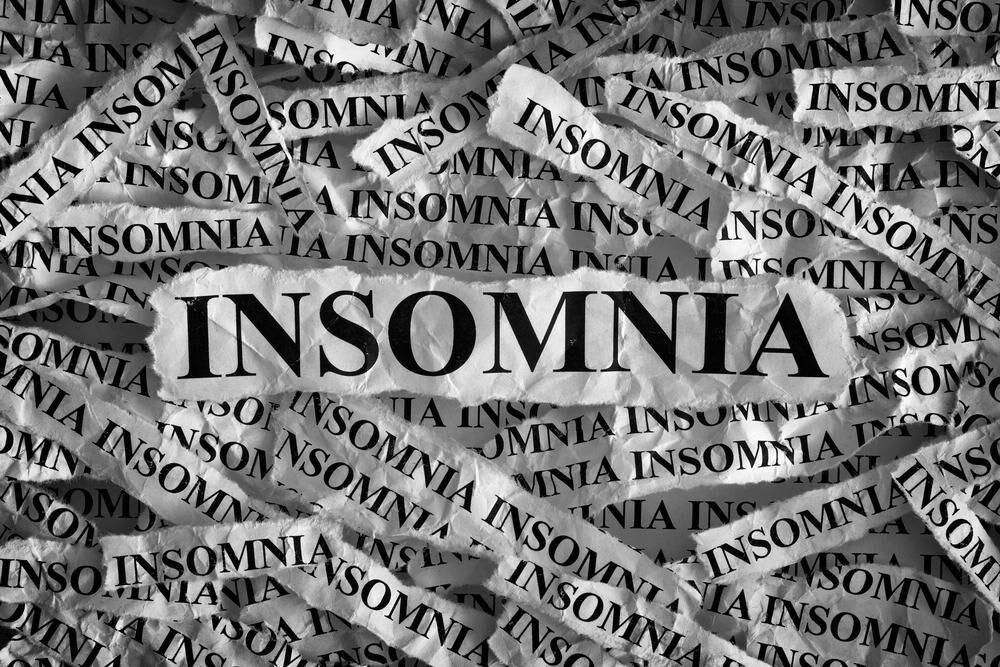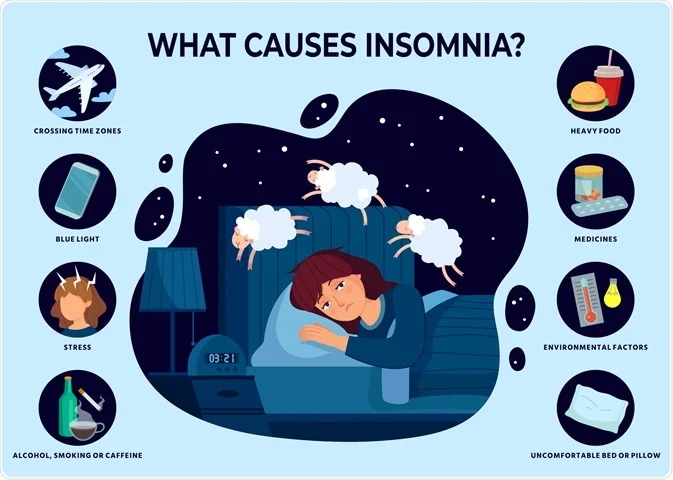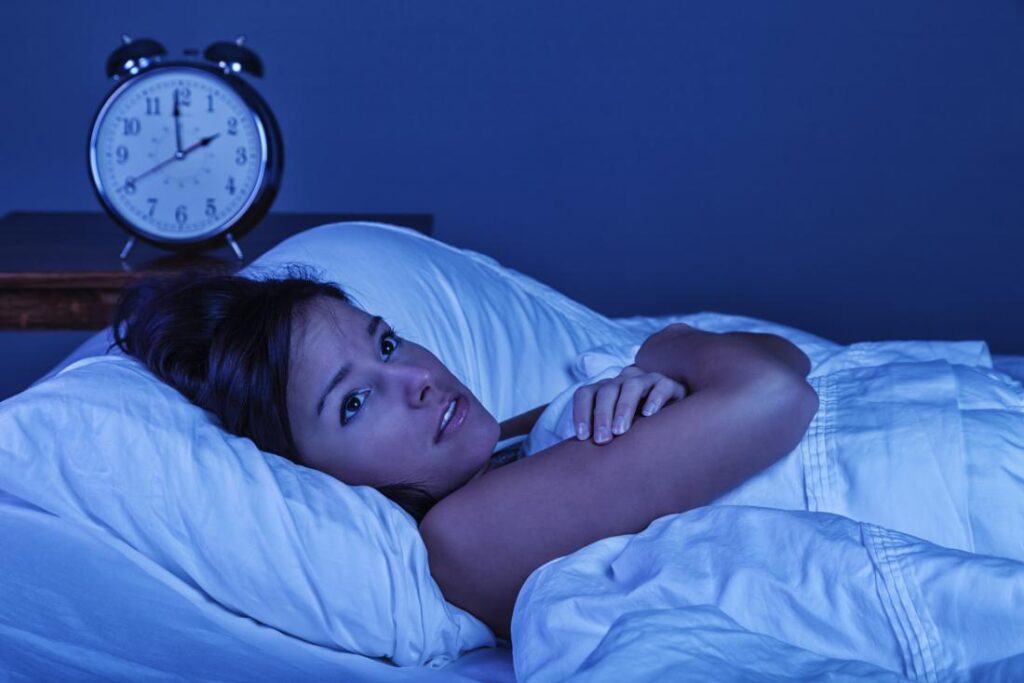Menu
TALK TO AN EXPERT
+91 9236407378
+91 9236407378
Insomnia is a common sleep disorder characterized by difficulty falling asleep, staying asleep, or waking up too early and not being able to go back to sleep. It can lead to daytime fatigue, mood disturbances, and a decrease in overall quality of life. Insomnia can be acute (short-term) or chronic (long-term), and it can affect anyone at any age, though it is more common in adults, especially older adults.
Worrying about work, health, finances, or relationships can keep the mind active at night, making it hard to sleep. Anxiety disorders, including generalized anxiety disorder and panic disorder, can also lead to insomnia.
Insomnia is a common symptom of depression, and it can also contribute to the worsening of depressive symptoms.
Irregular Sleep Schedule: Inconsistent bedtimes and wake times can disrupt the body’s natural circadian rhythm.
Poor Sleep Environment: Noise, light, an uncomfortable mattress, or an unsuitable bedroom temperature can interfere with sleep.
Caffeine and Nicotine: Both are stimulants that can make it harder to fall asleep if consumed too close to bedtime.
Alcohol: While alcohol might initially make you feel sleepy, it can disrupt sleep later in the night.
Lack of Physical Activity: A sedentary lifestyle can contribute to insomnia, as regular exercise promotes better sleep.
Menopause: Hot flashes and night sweats can interrupt sleep.
Pregnancy: Physical discomfort, hormonal changes, and the need to urinate frequently can affect sleep during pregnancy.
Eating a large meal late at night can cause discomfort and indigestion, making it hard to fall asleep.



The symptoms of insomnia can vary depending on the severity and duration of the condition:
Establish a Bedtime Routine:
Keep a Regular Sleep Schedule:
Limit Naps:
Create a Sleep-Inducing Environment:
Limit Stimulants:
Manage Stress:
Regular Exercise:
Limit Screen Time:
If you experience persistent insomnia that affects your daily life, it’s important to seek medical advice. Early intervention can prevent insomnia from becoming a chronic issue. In addition to conventional treatments, exploring homeopathic options with providers like Won Homeopathy can offer holistic support for managing insomnia effectively.
Won Homeopathy: Provides individualized homeopathic treatments that aim to address the underlying causes of insomnia, such as stress, anxiety, or hormonal imbalances. These remedies focus on promoting relaxation and restoring a natural sleep cycle, complementing conventional treatments.